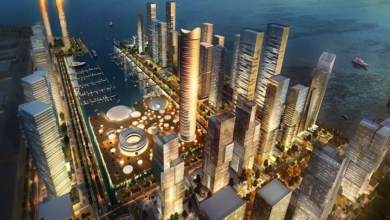
After his first term based on reconstruction, Alassane Ouattara has reorganized the cabinet against a backdrop of social unrest just in the mid of the second term.
Côte d’Ivoire experienced a week of unrest: mutinous army, government officials on strike, and cabinet reshuffle. The cabinet reshuffle requires a new roadmap to the President, at the onset of the second phase of his term facing social unrest.
The main outsiders
The prospects of the witness passage in 2020 could not leave the government impervious following the unrest. Some are paying for unsuccessful reforms and others for election defeats. On the one hand, some Ministers have been dismissed due to the long longevity such as Moussa Dosso (since 2003), the driving license and transport reform by Gaoussou Touré, or the mismanagement of the DNTV process by Affoussiata Bamba-Lamine, respectively. On the other hand, the election defeat of Anzoumana Moutayé of MFA and Rémi Allah-Kouadio of PDCI, Ministers and faithful to Bedie, clearly vindicates their dismissals.
As for Duncan, perfectly bilingual technocrat just like Ouattara, his dismissal is linked to economic aggregates. He left the Premiership to become the Vice-President, which should not, therefore, be void in public opinion. However, the confirmation of Ahoua Theophile N’doli, as Director of Cabinet of the new prime minister but formerly of Duncan, reveals that Ouattara wants to play continuity. Thus, the Premiership without Duncan should not really change in the implementation of the country’s political program. Moreover, Patrick Achi, then Minister of Economic Infrastructure, announced that there was little acceleration of investment in economic infrastructure, which should therefore be maintained under the new team.
New Roadmap
Amadou Gon Coulibaly, Minister and then Secretary General of the Presidency, is the new Prime Minister. His roadmap focuses both on institutional reforms « with modernized administration, the promotion of good governance and justice that reassures compatriots and foreign investors » and on economic reforms to support « the promotion of agro-industry, the development of energy – including renewable energies – and the development of infrastructure. »
Through actions on employment in response to the social unrest, the new Prime Minister also intends to take necessary measures on employment. « At the social level, our efforts in the areas of health, education, drinking water, electricity; our enhancing actions to ensure a better redistribution of the fruits of growth; and the acceleration of job creation programs especially for young people » are the new priority areas.
But in a post-crisis context, the new strongman of the government does not leave the security plan behind, as he intends to pursue « the efforts of modernization, professionalization and equipment of the Defense and Security Forces to guarantee the security of people and goods. »
Social unrest
Despite an estimated growth of 8.5% by the IMF, Côte d’Ivoire still faces social challenges. In the markets, it is a protest against high prices of commodities and the permanent complaint of the population of Côte d’Ivoire about the economic growth. The retirement reform by an order of 2012 provoked a general strike of the 66 trade unions of the Civil Service. The strike is systematically «unlimited», according to officials of the platform of trade unions of the Civil Service in Côte d’Ivoire. As for the mutineers, the government agreed to pay from Monday 16 January, CFA 5 million to each of the 8400 soldiers from the former rebellion of “Forces Nouvelles”. In addition, CFA 7 million will be paid to each soldier over 7 months, a total of CFA 12 million per soldier. It is the price of war and peace. Issiaka N’GUESSAN
Author Issiaka N’guessan // Photo : Nouvelle équipe gouvernementale – © Issiaka N’guessan







